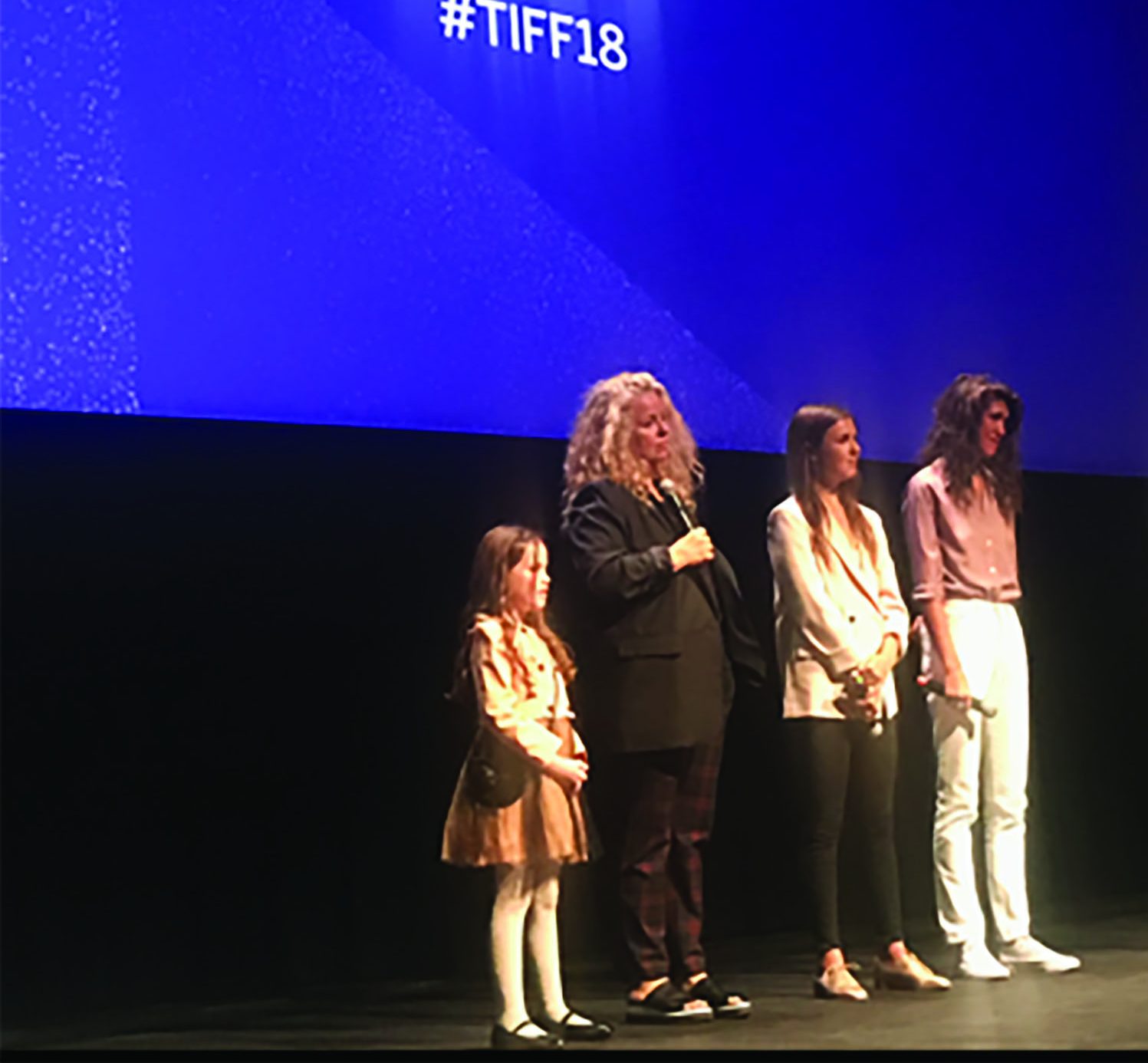Golnaz Taherian | Arts Editor
Featured Image: Rozema, Sadava, and Nostbakken consider ‘Mouthpiece’ a love letter to Toronto. | Golnaz Taherian
Patricia Rozema, the Canadian filmmaker, has adapted Norah Sadava and Amy Nostbakken’s award- winning play, ‘Mouthpiece,’ into a movie innovative in both vision and form.
‘Mouthpiece,’ which premiered September 6, at the Toronto International Film Festival, is a powerful film which demonstrates the devastating struggle of losing a parent.
The movie depicts a 30-year old aspiring writer, Cassandra, who is struggling to write a eulogy for her mother. Cassandra is played simultaneously by two women, the original creators Norah Sadava and Amy Nostbakken, who dress the same and have internal conversations.
Throughout the film, Sadava and Nostbakken take turns portraying the protagonist. The two figures experience the same pain and confusion throughout the story, but they also butt heads with each other.
Cassandra’s mother, Elanie, played by Maev Beaty, is introduced to the viewers through a series of flashbacks. The flashbacks show how Elanie, a writer, had chosen to postpone her career to take care of her
children. Even though Cassandra and Elanie loved each other deeply, they clashed and argued often over Cassandra’s tomboyish feminism.
Elanie questioned Cassandra’s tomboyism, worried that it would scare off men and potential dates. Cassandra experienced confusion and an identity-crisis due criticism from her mother and other family members, but she never allowed this pressure to change her.
Cassandra’s internal reserves of anger and resentment towards her mother makes it difficult for her to write a eulogy. For example, she reminisces about an argument she had with her mother at a party on Christmas Eve, when she had drunkenly told her mother all she cared about was being nice to everyone and how she wasted her whole life and career. A moment she regrets, which causes her to break down into tears.
Cassandra goes to the funeral, frustrated, and struggles to stand up and give the eulogy. Her internal struggle is represented by the two figures physically fighting which leads to a nose-bleed. One figure tries to stop the other from giving the speech. But eventually, Cassandra wins over her fears and insecurities and gives the eulogy.
She talks about her mother’s sacrifices for her and her brother and how she was capable of so much more than the world knew. She reminisces about her childhood memories with Elanie and how her mother told her she can use her voice in anything.
After the film, the director came out on stage to speak about the movie. What attracted Rozema to the play was its adventurous form. She noted that two women playing the same character was a fascinating concept she deeply related to.
“That internal debate, that dual consciousness, that conflict that we have within ourselves, I’ve never seen it in physical form, and I believe that film shouldn’t just represent what is visible—film should make visible what is invisible, and I’ve been on that track since my first film,” says Rozema.
When asked about what inspired the Toronto setting in the play and movie, Norah Sadava replied: “They are the places we hang out and we’re both single, 20-somethings living in Toronto biking around in the middle of the night in winter. So, we wanted every detail. It’s so pleasing to see something that’s so specific, so true to a real person’s experience. It does feel like a love letter to Toronto when I watch it.”
Overall, ‘Mouthpiece’ is a deeply nourishing and emotionally passionate movie which employs an adventurous method of filmmaking that everybody can appreciate.


